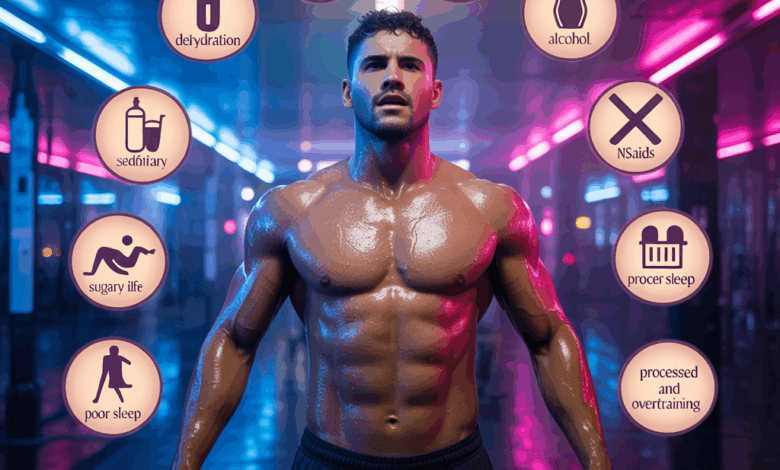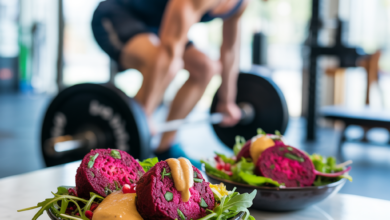10 Common Daily Habits That Can Lead To Significant Kidney Damage

Ever finish a long day and wonder if one more soda, skipped water bottle, or quick painkiller will really hurt you? It’s easy to assume kidney problems are a distant worry, but everyday choices add up. What if a few small habit changes now could prevent chronic kidney damage later?
Why kidney health matters
Your kidneys do heavy lifting: filtering waste, balancing fluids and electrolytes, regulating blood pressure, and supporting red blood cell production. Even mild, repeated insults from daily behaviors can accelerate nephron loss (the tiny filtering units) and lead to chronic kidney disease. The good news: many risky habits are fixable with simple lifestyle shifts.
10 common daily habits that can lead to significant kidney damage
1. Staying chronically dehydrated
Skipping water, relying on caffeinated drinks, or not refilling your bottle leads to concentrated urine and can increase the risk of kidney stones and acute kidney injury. Aim for consistent hydration—about 8 cups as a baseline, more if you’re active or live in heat.
- Tip: Set hourly water reminders and carry a refillable bottle.
- Fitness tie-in: Sip water before, during, and after workouts to support circulation and kidney filtration.
2. Frequent use of NSAIDs and over-the-counter painkillers
Nonsteroidal anti-inflammatory drugs (like ibuprofen and naproxen) are great for short-term pain, but chronic use can reduce blood flow to the kidneys and cause damage over time.
- Tip: Use alternative pain strategies—ice/heat, physical therapy, targeted mobility work, or talk to your provider about safer options.
- Workout variation: Replace high-impact sessions that cause joint pain with low-impact options like cycling or swimming.
3. High-sodium processed diet
Too much salt raises blood pressure, which strains kidneys. Processed, packaged, and restaurant foods are common culprits.
- Tip: Cook at home using herbs and citrus; read labels and aim for under 2,300 mg sodium daily (or less if advised).
- Nutrition note: Pair reduced-sodium eating with our nutrition guides for meal ideas that protect kidney and heart health.
4. Excessive alcohol and recreational drug use
Heavy drinking and certain drugs can cause dehydration, toxic kidney injury, and worsen underlying health conditions.
- Tip: Limit alcohol, follow safe consumption guidelines, and seek help for substance use to protect long-term kidney function.
5. Smoking cigarettes
Tobacco narrows blood vessels and reduces kidney blood flow, worsening issues like hypertension and accelerating kidney decline.
- Tip: Quitting smoking improves circulation and reduces risk for kidney disease and many other conditions.
6. Eating a consistently high-protein diet without guidance
High-protein diets can be safe for many people, but in susceptible individuals or undiagnosed kidney disease, excessive protein intake increases kidney workload.
- Tip: Balance protein with plant-based sources and consult a dietitian if you have risk factors or existing kidney issues.
- Fitness tip: Match protein intake to your training goals and recovery needs—use our workout routines to plan appropriate fueling.
7. Sedentary lifestyle and uncontrolled weight gain
Physical inactivity increases the risk of obesity, type 2 diabetes, and hypertension — all major contributors to kidney disease.
- Tip: Aim for 150 minutes of moderate aerobic activity weekly plus two days of strength training.
- Workout variations: If time is tight, try three 10-minute brisk walks, or a 20-minute HIIT session on alternate days to boost cardiovascular health and insulin sensitivity.
8. Ignoring high blood pressure and high blood sugar
Skipping medication, missed doctor visits, or ignoring elevated readings is one of the fastest ways daily life accelerates kidney damage.
- Tip: Monitor blood pressure at home, track fasting glucose if advised, and prioritize medical follow-up.
9. Overuse of herbal supplements and high-dose vitamins
Some herbal remedies and high-dose supplements can be nephrotoxic or interact with medications, causing indirect harm.
- Tip: Always tell your clinician about supplements and avoid megadoses without testing and supervision.
10. Skipping regular checkups and urine/blood tests
Kidney damage often progresses silently. Not getting periodic labs means missed opportunities to catch problems early when they’re most treatable.
- Tip: Request a basic metabolic panel and urine albumin test if you have risk factors (diabetes, hypertension, family history).
- Real-world example: Many people discover early kidney dysfunction through a routine annual blood test — early intervention preserves function.
How to reverse or reduce risk: practical fitness and lifestyle strategies
Small, consistent changes yield big benefits. Here are actionable steps that protect kidneys and boost overall health.
- Hydration routine: Start each morning with a glass of water, use a marked water bottle, and include electrolyte-balanced fluids during long workouts.
- Exercise plan: Combine moderate cardio (walking, swimming, cycling) with functional strength work. Try bodyweight circuits, kettlebell swings, or resistance-band sessions twice weekly.
- Reduce inflammation: Prioritize sleep, manage stress with breathing or yoga, and favor whole foods rich in antioxidants and omega-3s.
- Sensible supplementation: Use evidence-based supplements only when recommended and tracked by a provider.
- Medical partnership: Maintain regular checkups, understand your labs, and follow up on abnormal blood pressure or glucose readings.
When to see a doctor
Seek medical attention for persistent swelling, changes in urine output or color, unexplained fatigue, shortness of breath, or flank pain. Early evaluation preserves options and may halt progression.
Frequently Asked Questions
A1: Occasional, short-term use of NSAIDs is generally safe for healthy kidneys, but frequent or high-dose use increases risk. If you rely on painkillers regularly, consult your clinician about safer pain management strategies.
A2: Individual hydration needs vary by activity, climate, and health status. A common baseline is about 8 cups daily, but active people or those in heat may need more. Monitor urine color — pale straw is a good sign.
A3: Exercise is beneficial for most people with kidney disease but should be tailored. Low-impact cardiovascular activity and moderate strength training are often recommended. Always check with your nephrologist before starting or intensifying a program.
Conclusion — Take small steps today to protect your kidneys
Awareness is the first line of defense. By addressing the “10 common daily habits that can lead to significant kidney damage” — from hydration and NSAID use to diet, smoking, and regular testing — you can preserve kidney function and improve overall health. Start with one habit this week: swap a soda for water, schedule a BP check, or do a 20-minute walk. For more practical plans, explore our workout routines, nutrition guides, and wellness tips. If you have risk factors, book a medical evaluation — your kidneys will thank you.
Call to action: Commit to one small change today and track it for 30 days. Share your progress or questions in the comments and subscribe for weekly health and fitness tips to protect your whole-body health.
For more insights on how nutrition affects kidney health, check out Common Misconceptions About Nutrition.





